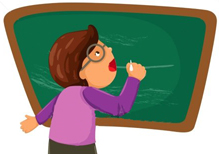 The first time I noticed a change in my memory was when I was teaching in Atlanta. I was in my mid-50s and had been giving college lectures for 20 years when I had my first classroom stumble. I was writing on the board when suddenly I couldn’t think of what the next word was going to be. I paused and panicked for a second, then turned to the class and started talking about a related topic. They probably didn’t notice. After all, they were used to me being a quirky instructor who often changed things up just to keep it interesting. But inside, I was freaking out.
The first time I noticed a change in my memory was when I was teaching in Atlanta. I was in my mid-50s and had been giving college lectures for 20 years when I had my first classroom stumble. I was writing on the board when suddenly I couldn’t think of what the next word was going to be. I paused and panicked for a second, then turned to the class and started talking about a related topic. They probably didn’t notice. After all, they were used to me being a quirky instructor who often changed things up just to keep it interesting. But inside, I was freaking out.
How was I going to be able to teach if I was forgetting what I was saying—right in the middle of a sentence? Over the next few weeks, I was able to get through an entire class without a problem. But then it happened again. And again. And then it started happening at home.
Seemed like every other time I got up and walked into another room, I couldn’t remember what I had gone in there to do. Sometimes, I just shrugged and went back, figuring I’d remember later. Other times, I got angry and tried to force myself to recall what I had intended to do. Most of the time, I learned to laugh about it. My friend Carol called it the “hereafter disease” where you walk into a room and wonder what you were here after.
Behind my occasional anger was concern about dementia. I’d heard about people losing their memory as they age and how some experienced serious mental impairment. When I could pull myself back from worrying, I realized just how busy I was, how many different things I was juggling. Perhaps it was just that as I got older, it became more necessary to be mindful of what I was doing. I needed to pay more attention to what I was doing. That meant stopping long enough to focus on what was next. Sometimes I could repeat the name of what I was looking for, either in my head or out loud. That helped. It gave my brain a chance to zero in and lay down the memory so it would stick.
As I make it a habit to pay closer attention, I find I can hold a thought longer. That helps me enter a room and remember what I went there to do. And as I make myself consciously aware of a point I want to make, it becomes easier to complete sentences. I can’t daydream and stay on point like I used to when I was young.
I know panic only makes my memory worse, so I am committed to making the effort to pay closer attention. To be more mindful. So far, so good.



